The end of the beginning: Loyle Carner on ‘hugo’, fatherhood and starting a new life chapter
Loyle Carner talks to Rolling Stone UK about his third album, hugo, which sees the 28-year-old rap star deliver his opinion on the urgent issues facing the UK, while reflecting on how fatherhood and maturity signal the start of a new phase in his life
By Athian Akec
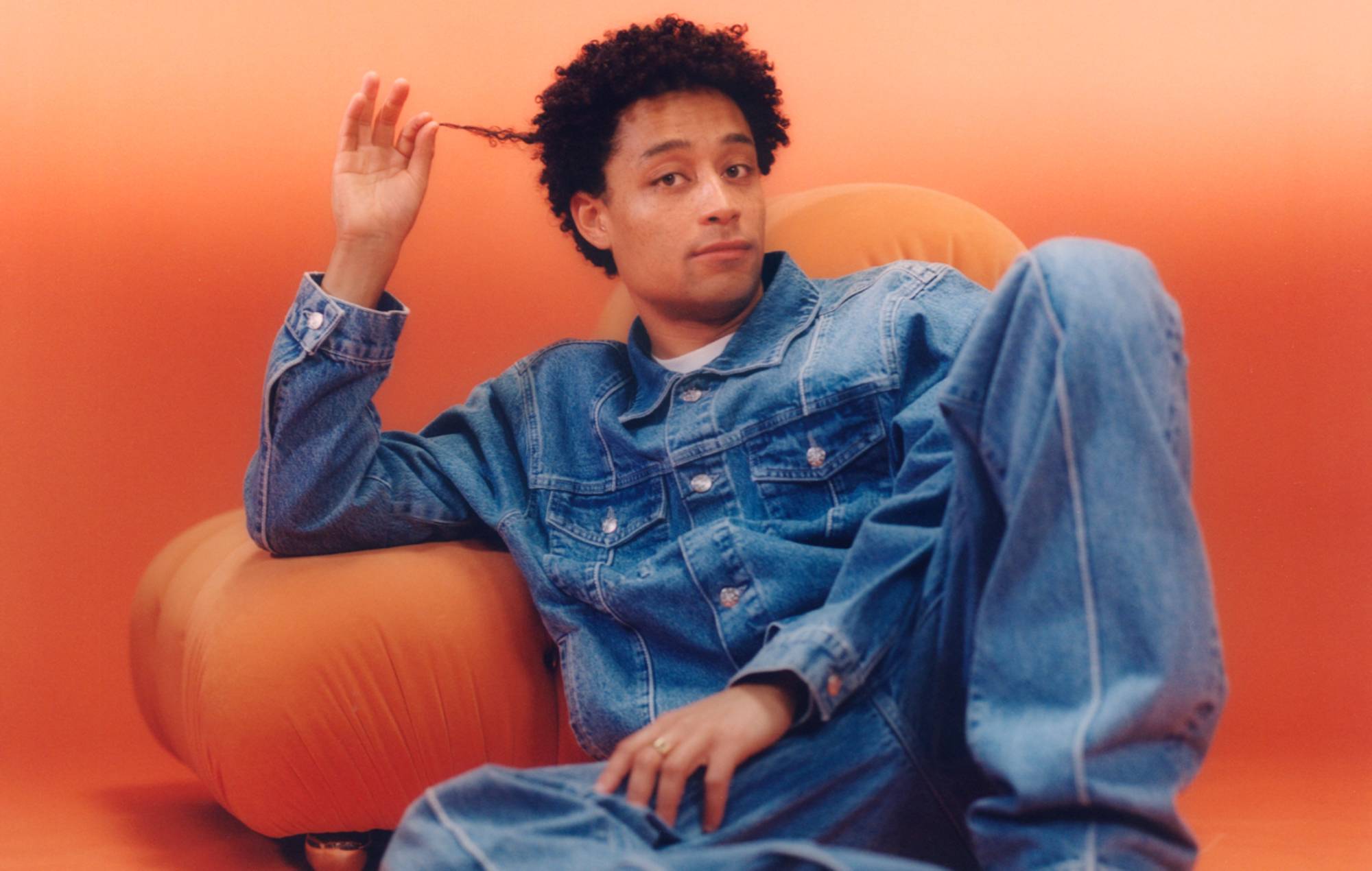
In art, golden generations are produced in somewhat paradoxical conditions, somewhere in the grey area between opportunity and pressure. The renaissance of British rap is in many ways reflective of these dynamics. The commercial and critical success of the now-dominant genre has coincided with a nation that has experienced wave after wave of economic and social strife.
One of the leading voices in British rap, Loyle Carner returned in October 2022 after a three-year hiatus with his latest album, hugo. Now 28, he’s been making music since he was 18, going from supporting MF Doom at his first gig to selling out the OVO Arena Wembley weeks before we meet for his Rolling Stone UK cover interview. After the well-received coming-of-age debut album Yesterday’s Gone in 2017, he propelled himself into the mainstream two years later with the populist-minded second album Not Waving but Drowning, which examined the limitations of making a dream reality.
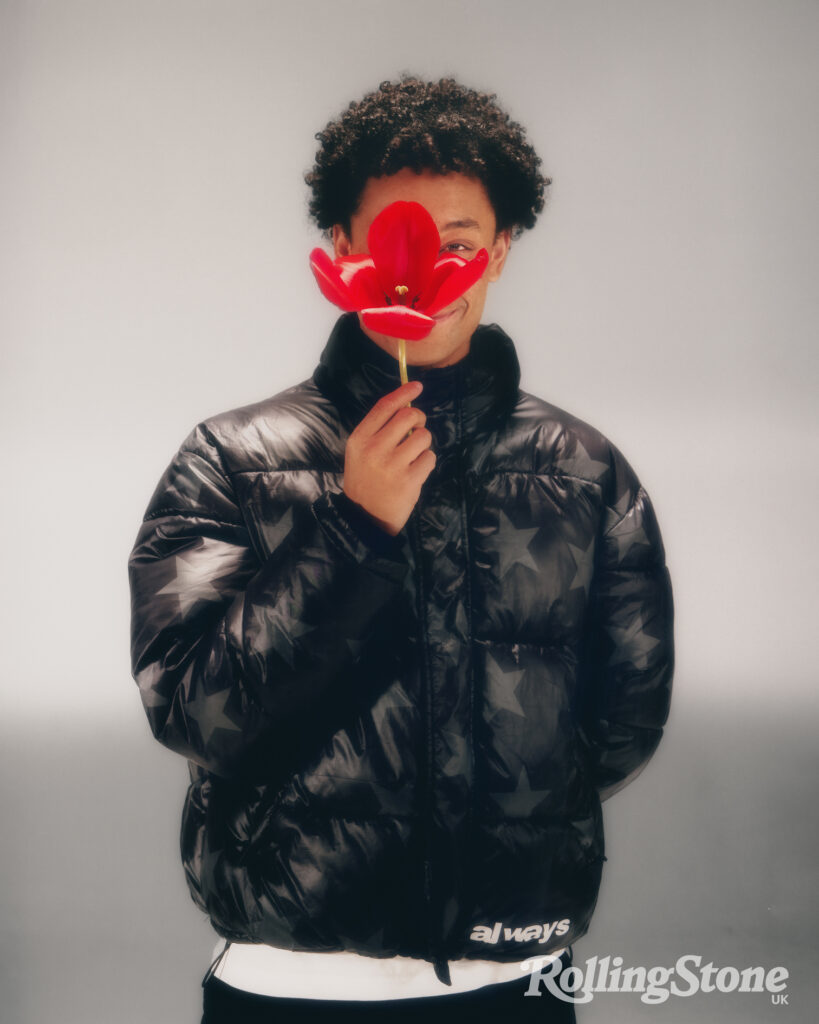
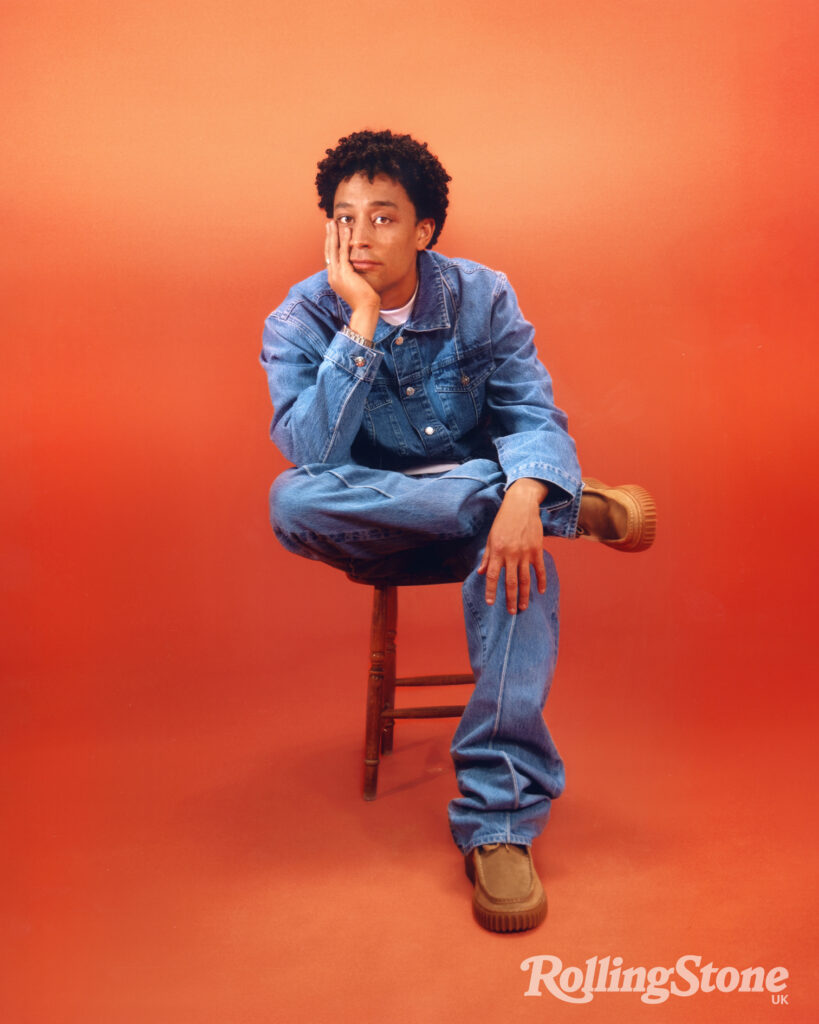
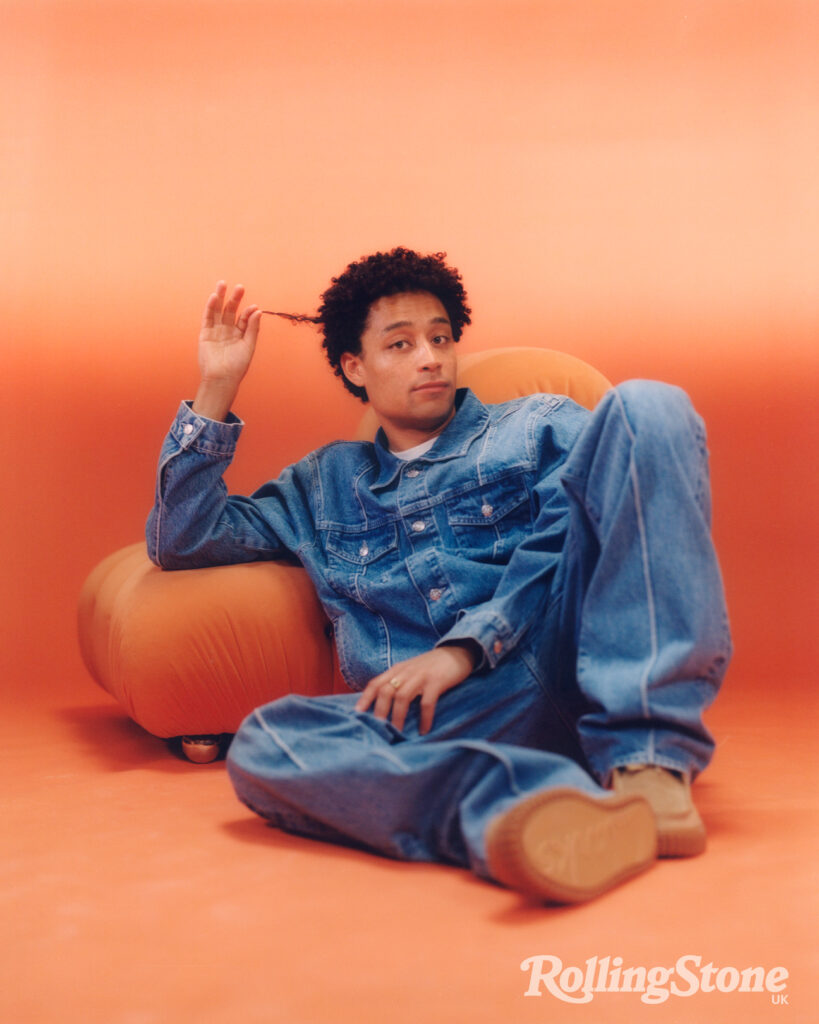
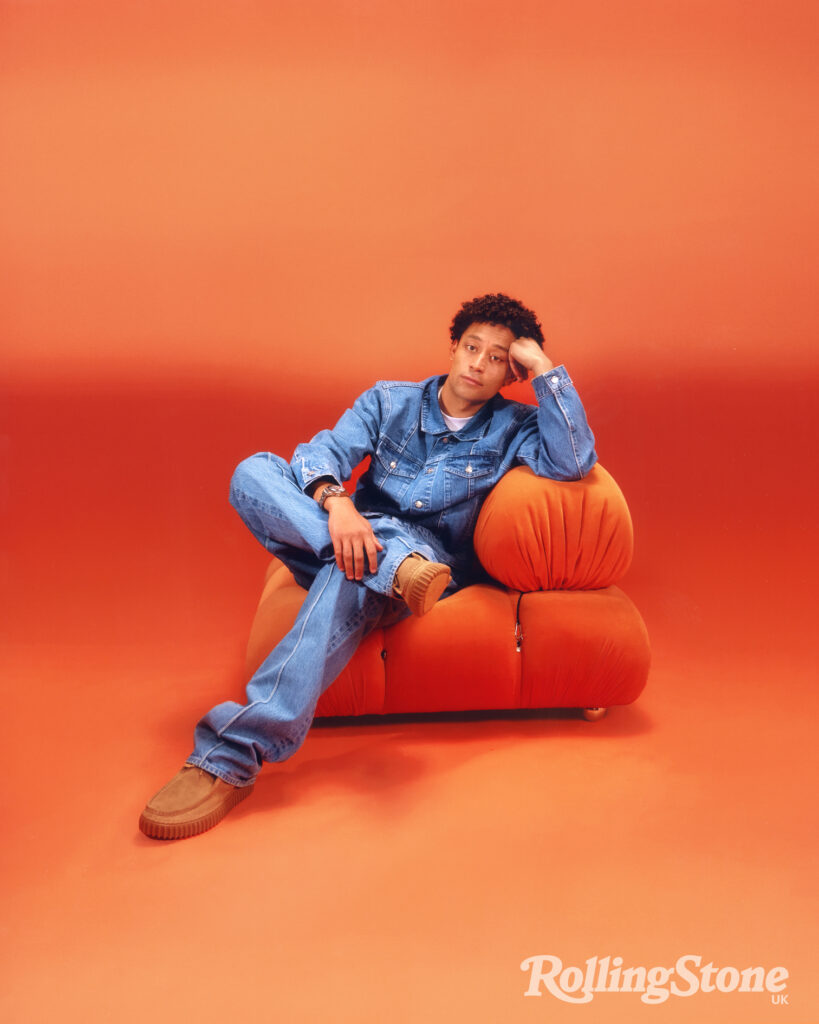
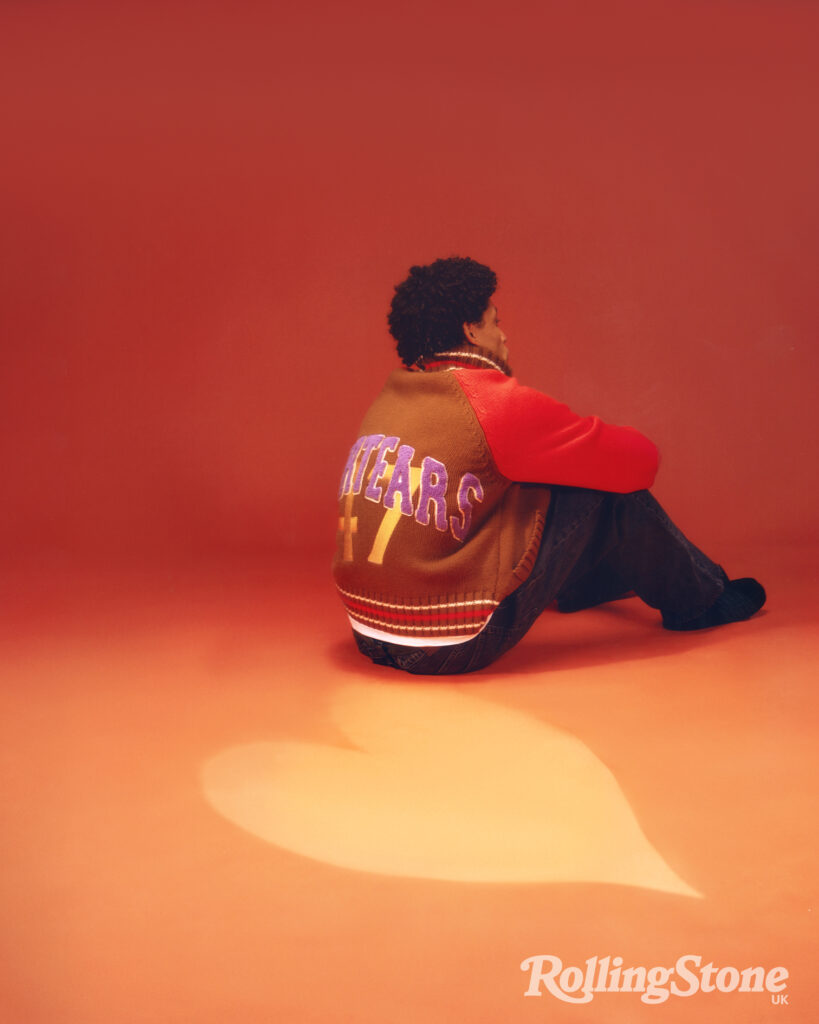
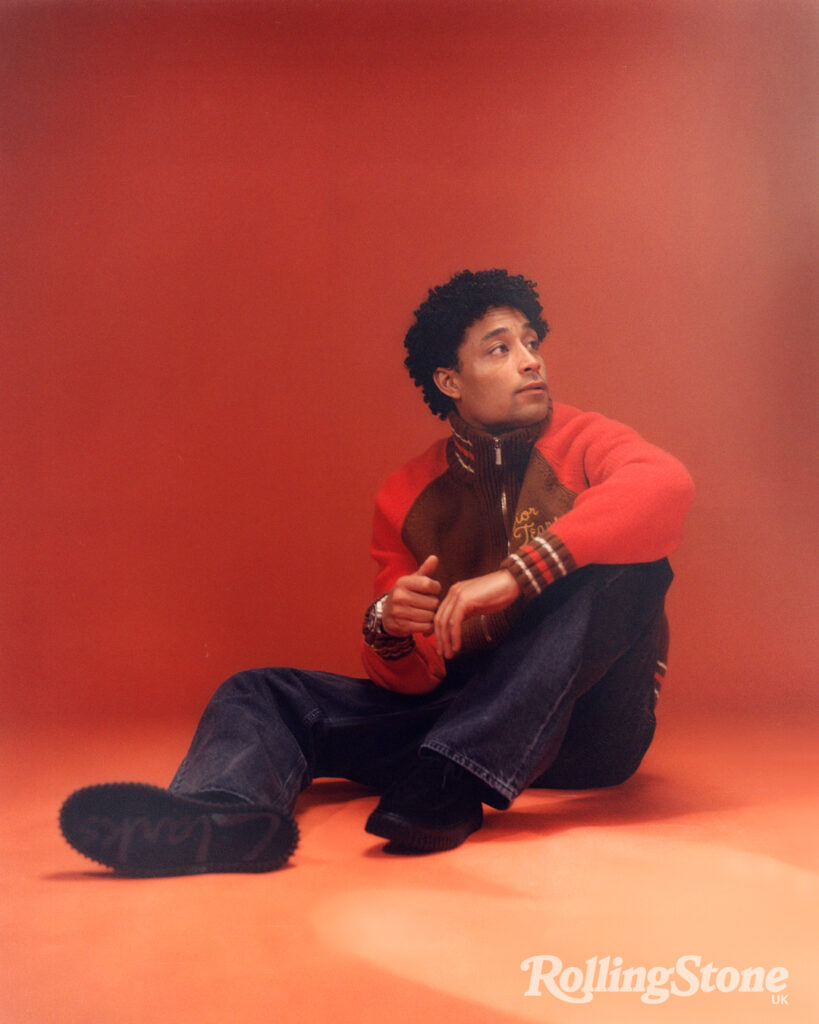
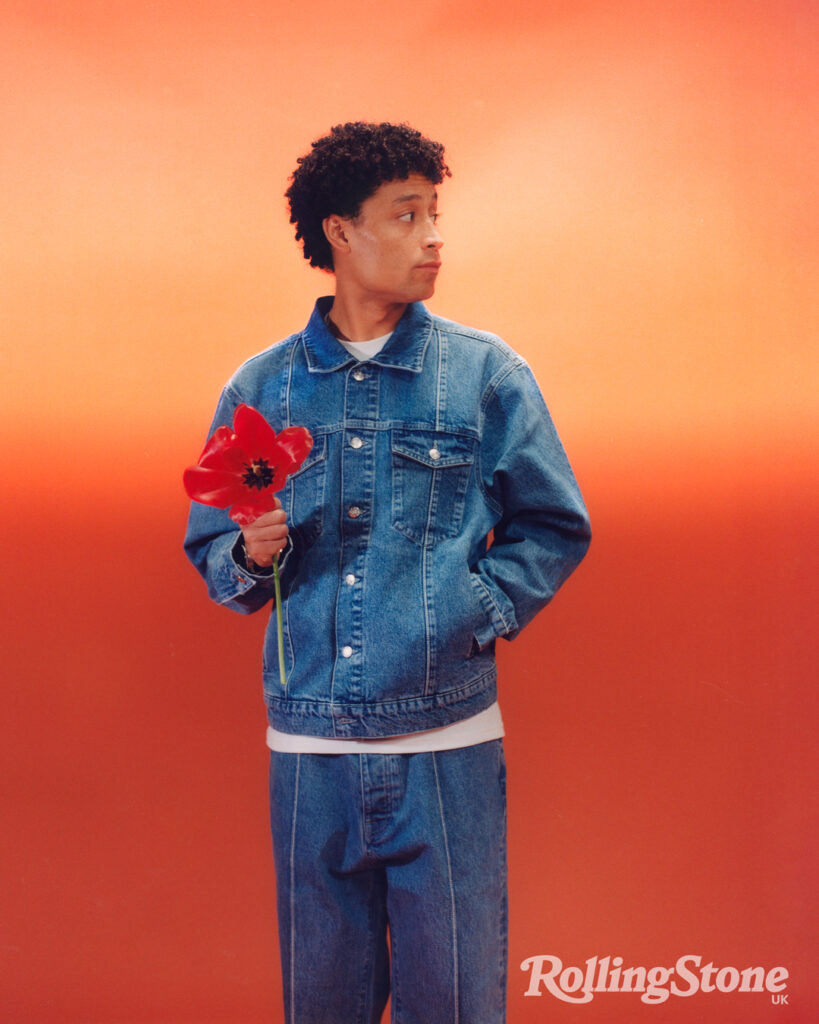
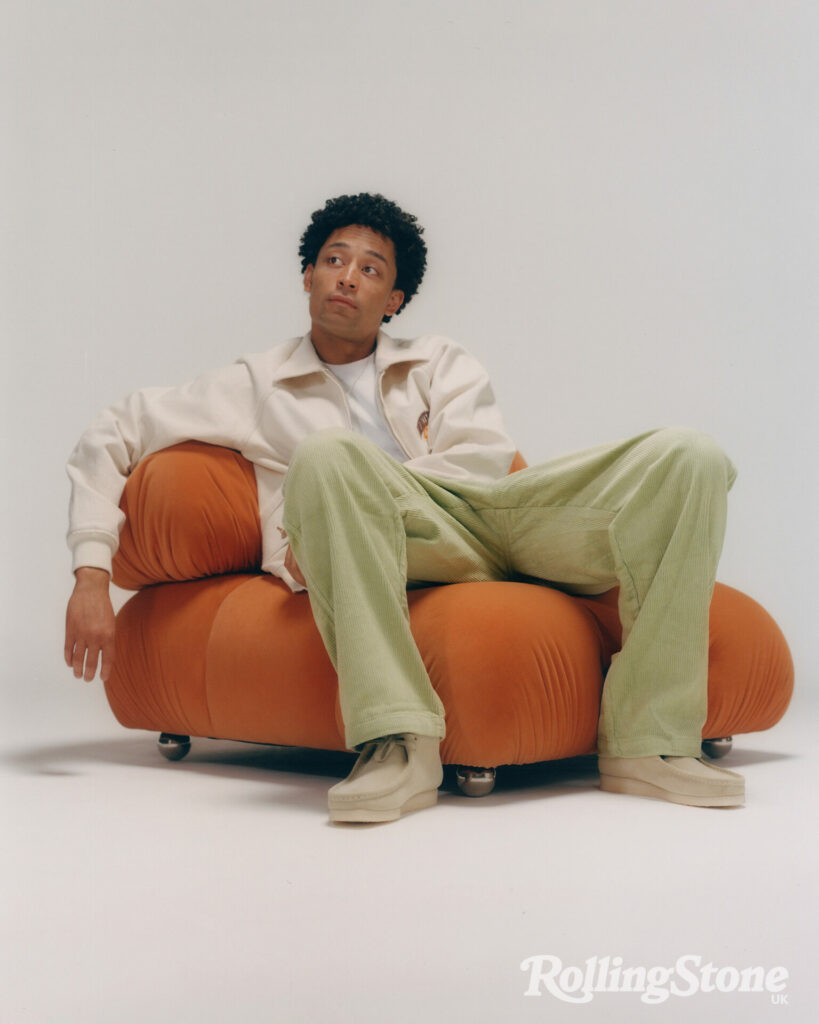
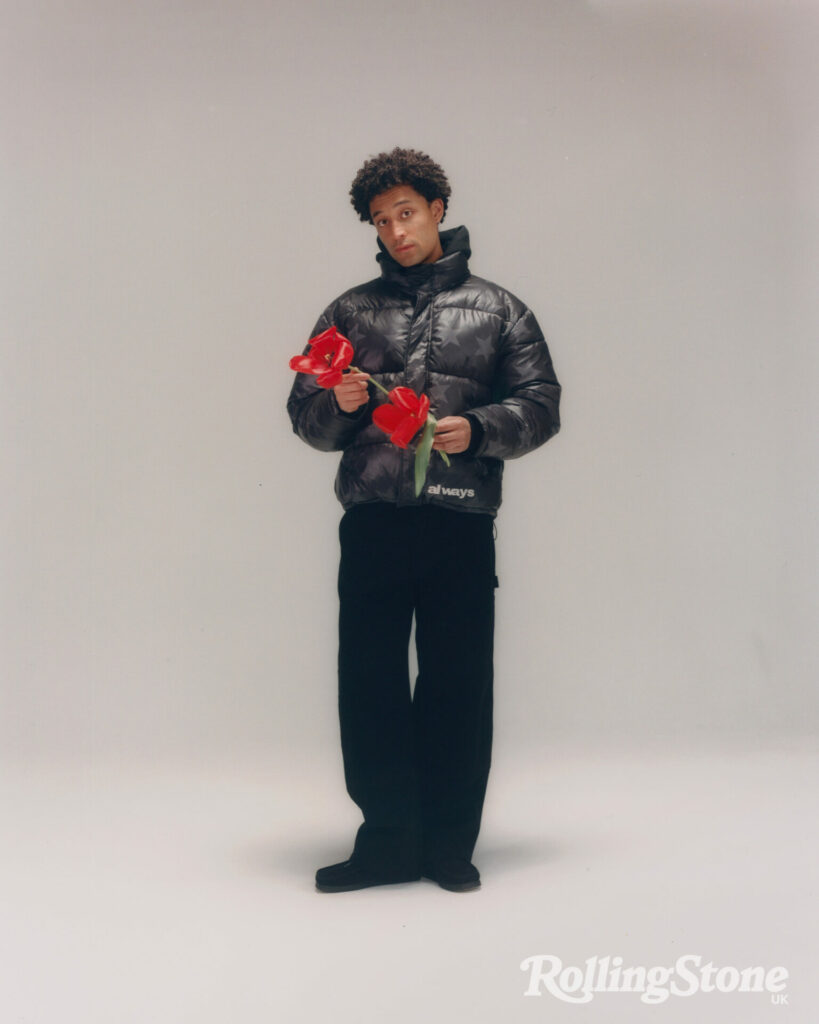
After achieving the fame and affluence afforded by charting albums, sold-out tours and prime festival slots, where do you go next? Album three, hugo, primarily produced by Kwes with support from frequent collaborators Alfa Mist and Jordan Rakei, is arguably a more expansive examination of the outside world while also offering a more candid look at Carner’s internal dialogue. Its 34-minute run time ties together the personal and the political. He comments on what it’s like to mourn youth, the importance of forgiving his father after he became one himself, and even the raw emotion of anger. On the political side, he takes aim at class stratification, materialism and over-policing of Black communities in British society.
I meet Carner on a grey April afternoon at his east London house and the conversation is just as kaleidoscopic as his music. The house is neat and somewhat minimalist with books and vinyl adding colour. He’s in a serene mood. As we begin the interview, he asks if I’ve eaten breakfast, and when I reply that I haven’t, he orders me a bagel.
We start at the beginning, with his childhood. Benjamin Gerard Coyle-Larner — his stage name is a spoonerism of his surname — was born in London to a white, British mother and a Black, Guyanese father, who Carner did not have much contact with growing up. Instead, he and his brother were raised by his mother and stepdad in south Croydon.
Throughout life we are constantly in negotiation with our formative memories, trying to wade past blind cynicism or optimism-tinted nostalgia to see true reflections of the experiences that have most powerfully shaped who we are. The roots of who we eventually become are also frequently found in what we experience at school or around our peers. It is a common thread increasingly referenced in music by millennial and Gen Z artists. When speaking about his favourite-ever day at school, Carner talks fondly of Mrs Nelson, head of English and Literacy at the BRIT School, who suddenly passed away in November 2022. Nelson, Carner says, was the first person from his “father’s side of the world” to show him that studying English was a genuine option for people from non-white backgrounds. He goes on to describe the day Nelson invited in half of the group Floetry (comprising Marsha Ambrosus and Natalie Stewart) as a real “eureka moment”.
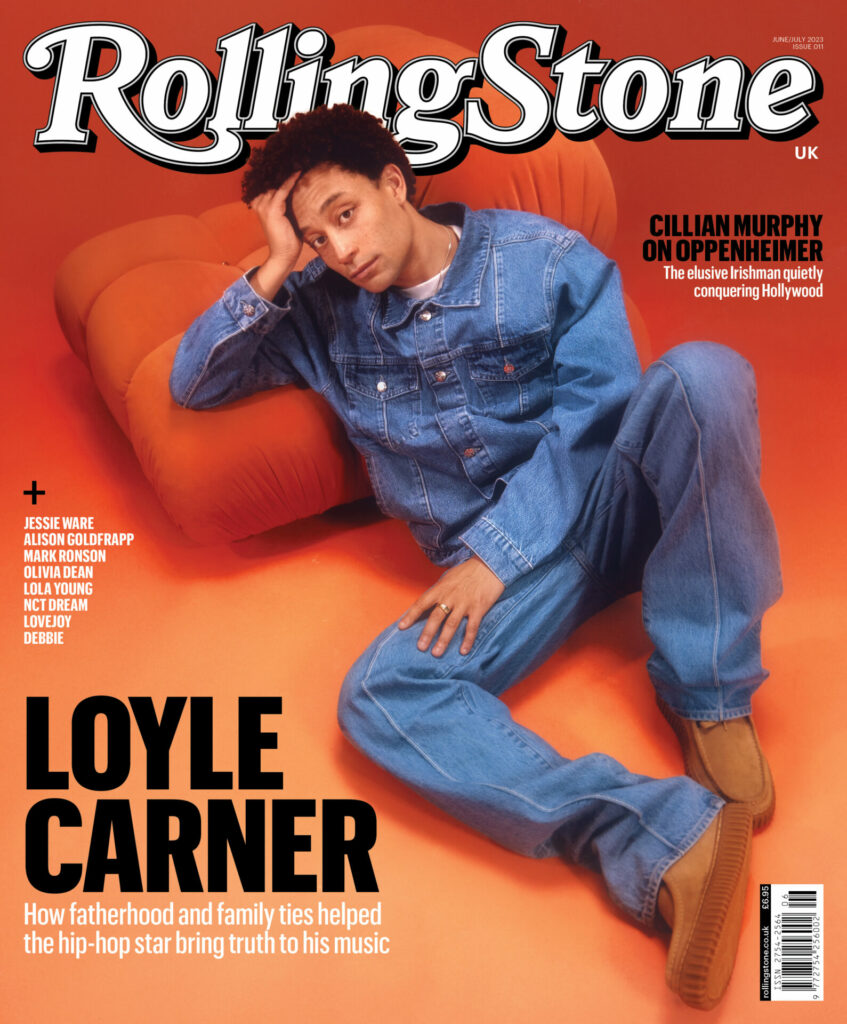
As much as Carner describes these experiences as opening up the possibility of creative expression as a viable career path, he also speaks about the difficulty of being neurodiverse. He has ADHD and is also dyslexic. It’s therefore no surprise that he found formal education challenging at times. These difficulties coupled with Carner’s issues with reading out loud were used by others to make him “feel stupid”, he tells me. He also describes in detail parents’ evenings as being a cycle of teachers telling his mum: “Your son has real potential, but he’s not doing enough with it.” The support of his mother, a special education needs teacher, helped Carner navigate this situation, allowing him to “do things that on paper I shouldn’t be able to do”. More than a decade later, he acknowledges the satisfaction of “being pretty much one of the only people in my year who gets paid to write”.
The rapper describes that he felt like an outsider in a multitude of ways throughout childhood. “Being mixed race, living on the outskirts of London,” he says, “but also musically, never really being brought into a ‘scene’”. Rather than viewing this as a weakness, Carner describes it as a strength of sorts, giving him greater clarity in the societal observations he makes in his lyrics.
Debut albums often represent artists at their hungriest and most relatable. Yesterday’s Gone is an album that, despite its laid-back, instrumental approach, was born out of necessity. After his stepfather died, Carner needed to provide for his family. On the record, Carner dives into the pressures of young adulthood, missing out on student loans and being resilient enough to see through dreams that don’t immediately materialise. Like many albums created at that formative point in an artist’s career, it’s written from the position of being an underdog, but Carner recites each bar with conviction and confidence.
From the perspective of young people who cling onto the words of rappers, it is the emotionally vulnerable nature of much of Carner’s music that makes it resonate. At the Belgium stop of his European tour, a young person in the crowd held up a sign saying: ‘Benjamin Coyle-Larner, you saved my life.’
“I do feel a responsibility to just keep making sure that I do right by myself,” he says as he thinks about his influence on fans. “And don’t let anyone down in terms of like, you know, behaving poorly… especially if they’ve got my shit tattooed on them.” Carner mentions that recently someone showed him their tattoo in tribute to Yesterday’s Gone. “I just feel responsibility to make sure that person can have that tattoo for the next 80 years, and never have to be like, ‘Yeah, it’s just the name of the album.”
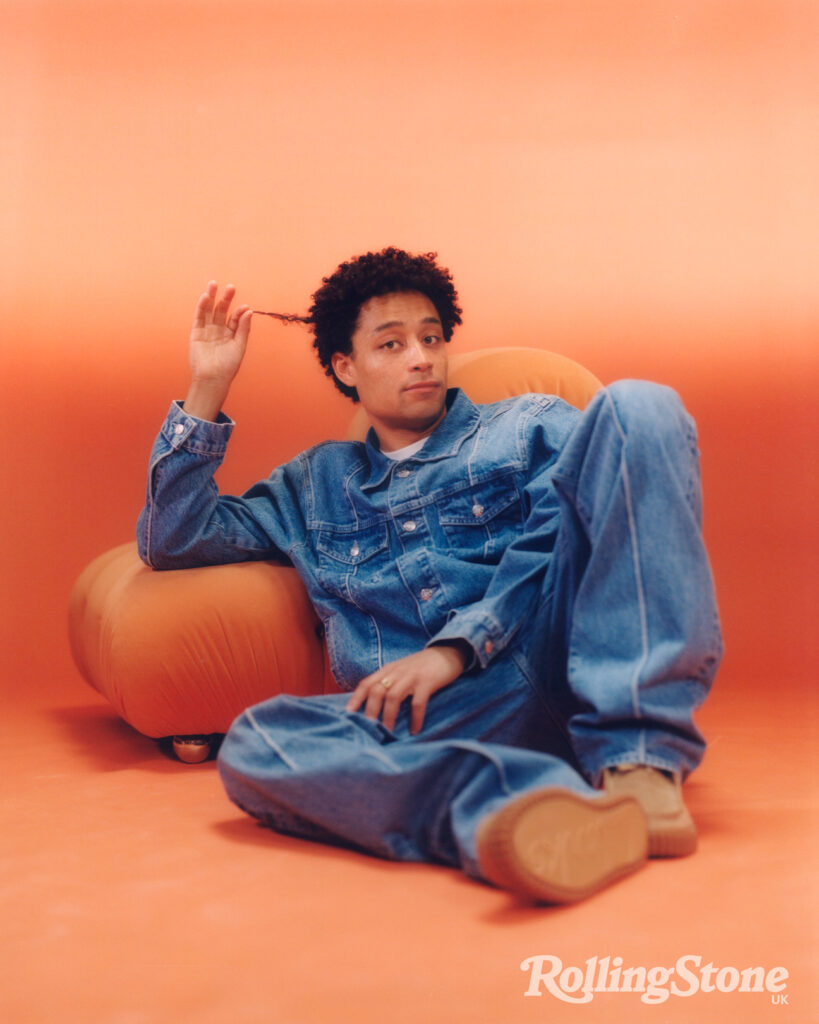
We discuss autoethnography (the idea of a person’s individual experiences being used as a tool for examining the wider issues and realities of society) as the basis of much of the best hip-hop and rap. Rap music across the western world has become a tool for commentary for those who are excluded from debates about the nature of their communities. Although it can sometimes be reductionist to brand music as ‘political’, the various manifestations of this global art form have served as tools of expression and intervention in political issues. In 2015, Kendrick Lamar’s single ‘Alright’ became the soundtrack to a summer of Black Lives Matter protests. Perhaps the lines “my knees gettin’ weak, and my gun might blow / But we gon’ be alright” encapsulate the emotional low of having to protest against systems of racism that seek to damage a person’s mental and physical health, explaining why the song endures as a symbol of defiance.
In recent times, Black British artists who are now in the mainstream have made political interventions about the raising of tuition fees, the neglect after the Grenfell Tower tragedy and its causes, the over-policing of Black British youth, and beyond. Music then becomes a way to document stories, with its ultimate aim being to change the reality they are rooted in. The idea chimes with Carner and his creative process.
In an interview with NME published shortly after his debut album received a Mercury Prize nomination, Carner, in response to a question about whether the political turbulence of 2017 would push more young people into creating music as a form of resistance, stated, “If you try to crush something into nothingness, that’s when flowers grow out of concrete.” His 2020 single, ‘Yesterday’, and its accompanying music video, is the first indication of his art taking a more explicitly political tone. hugo sees this developed further.
“What you’re doing in music is looking at how you want to push the world in some way forward,” he says. “You want to offer some sort of support or solace to people. But you can only do that for your own experience. I can’t tell other people how to live their lives. I can just say, ‘This is what I’m seeing. And you’ve probably seen something similar, this is how it affected me,’ and this is what I’m hoping to do going forward.”
It’s hard to imagine given the success of his first two albums, but Carner frames hugo as being the first time he’s really “tried hard” at something he’s produced, tracing this reluctance to fully apply himself back to his education. “Because at times when I was at school, and I tried hard, and it didn’t go well, and you don’t get any love,” he explains. “It was always just like, ‘This is not good enough,’ you know? And so, I think that you’re always worried about that feeling. You know, of like, ‘Ah, I tried, and nothing came of it.’”

Carner goes on to describe the effort laced into his third album as being a “necessary step” in exploring different forms of artistic expression, citing the multi-dimensional output of Donald Glover, who produced the shape-shifting absurdist show Atlanta and has written Grammy-nominated albums under the moniker Childish Gambino, as a blueprint. He also speaks about listening to Hoodies All Summer by British rapper Kano as an important reference point while writing hugo. “Kano is one of the few rap ‘OGs’ who looks out for and uplifts me,” he says, adding how recently Kano sent him a jacket with a note inside that stated: “The silent win is loud.”
It was the life-changing moment of becoming a father that Carner says shaped not only the more serious approach he took to his third album, but also its content. He credits the birth of his son as inspiring him to write more openly about his adolescent experiences in a way that pushes his audience further outside the “comfort zone” than his previous work.
The album also draws on Carner’s relationship with his biological father. Every night during his recent UK and European tour, Carner delivered a speech about his father, who he says he was never that close to. Carner tells how he called his father to say he was going to be a dad at the age of 25. His father shocked him by putting the phone down — but he then rang back some weeks later to say he wanted to teach Carner to drive. It was during these lessons — in a car called Hugo — that Carner learned more about his father’s upbringing in a care home, “with no understanding of what it was to be a father or to love anyone”. It was then that Carner was able to forgive him and in doing so break the cycle of dysfunctional fatherhood. This act, he says, was an important part of giving his son access to his Black heritage. Carner ends his address by saying: “The album wouldn’t exist without my dad’s car.” After the speech was uploaded to TikTok by a concert goer, it went viral and garnered over a million views.
Elsewhere on hugo, Carner leans heavily into the frustrations of being a young Black man in contemporary British society: on ‘Speed of Plight’, he raps about the isolation of existing on the wrong side of the British class stratification. ‘Blood On My Nikes’ sees Carner reflect on being scared of the night bus, while on ‘Hate’ he tackles police brutality.
Confronting one’s own mortality is another theme of the album. In his younger days, Carner was not always sure that he’d make it to adulthood. “Now, I’m older. And, by that, I mean I’m 28 and [I’ve] got a house,” he says. “I talk to [rapper and political commentator] Akala about it sometimes and he says that there’s that moment where you walk past someone on the street, and instead of looking at you like you’re the problem or the enemy, they’re kind of like, ‘We both are saved from this dynamic.’ I mean, you’re out of this now. And I think it’s easy to feel that relief. But then when you have a child, you remember that the cycle is repeating again, you start to think, ‘OK, what’s the landscape like for the next generation?’ It really helped me because without that, it’s easy to start to fall out of touch.”

Carner talks about this moment in his career as being important in terms of sharing the things he really wants to say. “For the first 30 years of your life, or like Tupac says at the end of ‘Mortal Man’, that’s your window. Before you get beaten down by responsibilities and make compromises or whatever, now you’re free to activate,” observes Carner on the idea that young people have a certain moral clarity when examining the world. “And so, I think as I’m coming to the end of the beginning, I get to kind of see a beginning starting again, so it’s allowed me to see the world through my son’s eyes, and it looks big. Still, you know, I don’t feel like I have to compromise. I think that that mentality is so dangerous. So, he stopped me from being complacent. Because the world is nowhere near where I want it to be for my son to grow up in it.”
Acknowledging his gratitude for being in a position to carry on doing what he loves, Carner also stresses that it’s taken him a while to learn how to enjoy the process and the special moments. “I haven’t been doing this for a short period of time, I know how hard you work to get here,” he says when we speak about his biggest-ever show at Wembley. “I’ve played big shows before, and it’s all been a whirlwind and I haven’t taken any notice. So, I think I was lucky because I could feel the gravity of the situation and be moved by it, to see how many people were out there. To see the emotion, the collective consciousness.” The tour received critical acclaim from reviewers and approval from fans, with clips of performances widely shared across TikTok feeds and Instagram Stories.

“For this album, you know, I was finally putting myself first, if I’m honest, and putting the art first for myself, and I knew that this music was made with a band. The community on stage that when you feel overburdened, it makes me understand why the Red Hot Chilli Peppers or whatever are still together after all these years, because the feeling you have is different,” he says about how his live band worked to elevate each performance. “There’s, like, five different people you could turn around to and all of them are, like… you know they’ve got your back. It’s tight as well. It becomes a different thing.”
Undoubtedly, one of Carner’s strengths as a musician, artist and communicator is his ability to uncover hopeful elements in difficult subject matter without falling into blind optimism. Throughout our conversation he carves out silver linings. In response to my question about how we remain hopeful about the possibility of improving the world, he talks about “the leaps and bounds that have been made around raising awareness on neurodivergence” and speaks enthusiastically about people doing work right now that is needed to craft a better future. He mentions the rapper Kendrick Lamar, the psychology author Michael Pollen and the kids who attend his annual ADHD summer cooking school as providing inspiration in different ways.
It begs the question, with the epic failings of the current government, what would Carner’s priorities be if he were prime minister? “I would focus on nurses, teachers, youth workers. Find the space for the next community to thrive,” he says. With an upcoming headline slot at Glastonbury set to further elevate his profile, Carner is here to stay, and to continue expressing himself on the issues important to him while effortlessly subverting expectations. It’s this ability to articulate hope in a way that acknowledges tragedy that affirms why Loyle Carner will be one of the most significant British artists for years to come.
Taken from the latest issue of Rolling Stone UK, out May 11. Buy your copy here.
